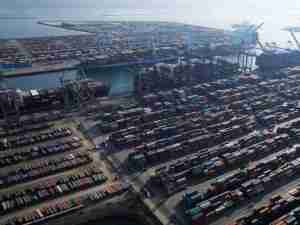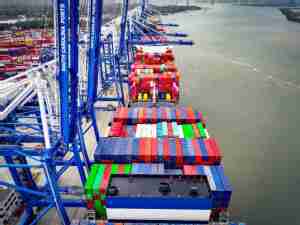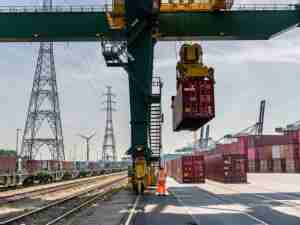The 28-year-old was among the roughly 2,000 truck drivers who went on strike last week in Shanghai to complain about ever rising costs, the issue that China's leaders have openly acknowledged as the top concern of the world's second biggest economy.
"We can't do anything else. We come from poor families, we have no skills, no degrees. We are all like this," Fan said at a truck stop outside one of Shanghai's busiest port facilities.
And in a sign of the priorities of the government, which has been willing to face international criticism for its recent rounding up of political dissidents, officials were quick to offer an olive branch to the strikers by cutting some of the fees they are charged.
The strategy worked and the strike had fizzled out by the weekend.
But it was a sobering reminder for China's leaders: inflation is spurring dissent, and the unrest could spread. Workers as loosely organised as independent truckers have proven themselves willing and able to strike.
Others may follow their example.
"If worker's rights are not fully protected and their work ignored, there will certainly be more such strikes in the future, especially in labour-intensive industries," said Wang Jing, dean of the department of labour relations at Capital University of Economics and Business in Beijing.
Giving only his surname out of fear of retaliation, Fan said parking fees, rent for his family's housing and insurance on his truck have all doubled in the past five years while his wages have stagnated or even dropped.
Fan, from the central Henan province and who lives in a tidy one-room shack with his wife and 2-year-old son, said his monthly income of between 3,000 to 5000 yuan ($450 to $765) has not increased in five years.
"Everywhere prices are going up, but our shipping prices aren't rising. So our profits are decreasing," said Zhang Xianzheng, 49, a driver from Shandong province.
"Parking has gone up five or six times. Our home rent has gone up. Clothes, food, everything has gone up. Our profits are gone so we went on strike," he said, adding that he appreciated the steps the government took in response to the strike.
From Inflation to Protest
Truck drivers have been harder hit than many by China's inflation. In addition to overall price rises -- inflation hit 5.4 percent in March from a year earlier -- they saw the government lift diesel prices by 5-5.5 percent in early April to record highs.
Other groups are also feeling the pinch.
Taxi drivers frequently strike over government rules and fuel costs, and last summer a string of strikes at factories across China put a spotlight on increasing labour demands in the world's low-cost manufacturing hub.
The possibility of inflation igniting wider protests is no abstract worry for the Communist Party.
China's current generation of leaders keenly remember how rising costs contributed to the discontent fueling the 1989 pro-democracy protests centred around Tiananmen Square.
In the case of the Shanghai strike, the drivers were able to gather quickly using word of mouth -- seemingly without organised leadership -- and by using text messages.
It's not the first time this has happened.
Last year's wave of strikes by migrant workers -- organising themselves with text messages and microblogs -- disrupted the operations of foreign manufacturers. Those strikes yielded significant pay increases for many of the workers.
Yu Hai, a professor of sociology at Fudan University in Shanghai said the Chinese government's worries about organised labour movements are linked to China's one-party system of government.
"The government is powerful enough to solve many problems, but it worries that if it resolves one strike, everyone will get the same idea," Yu said. "The government can't solve all problems, and fears a small issue can easily evolve into a major problem."
To stave off such discontent, the government has responded w










